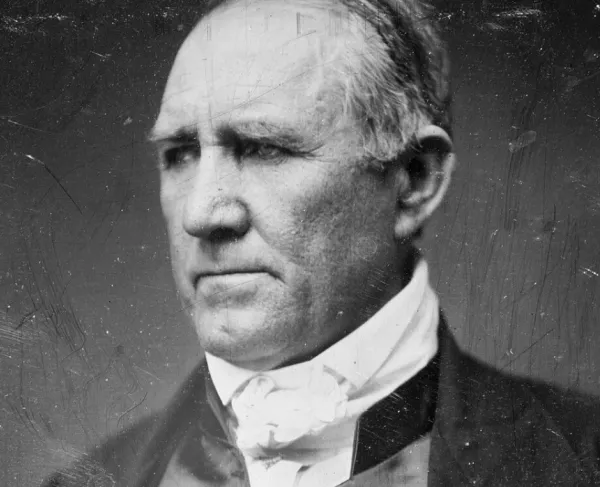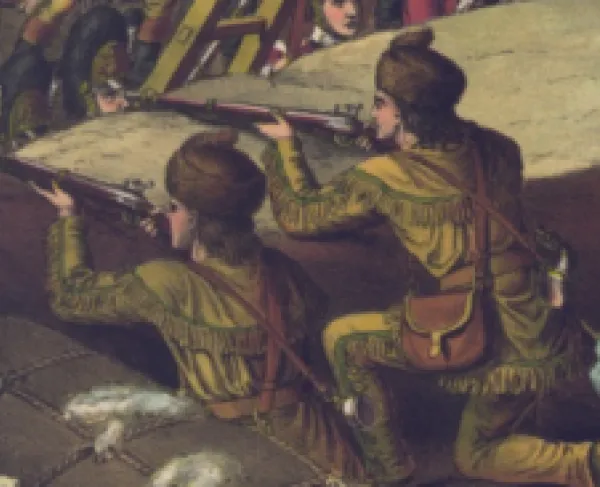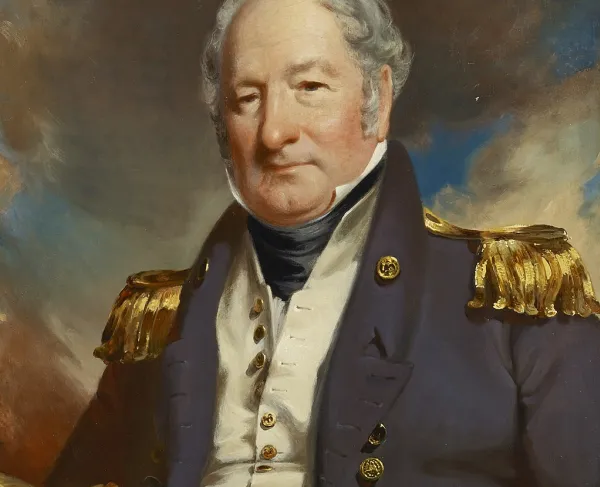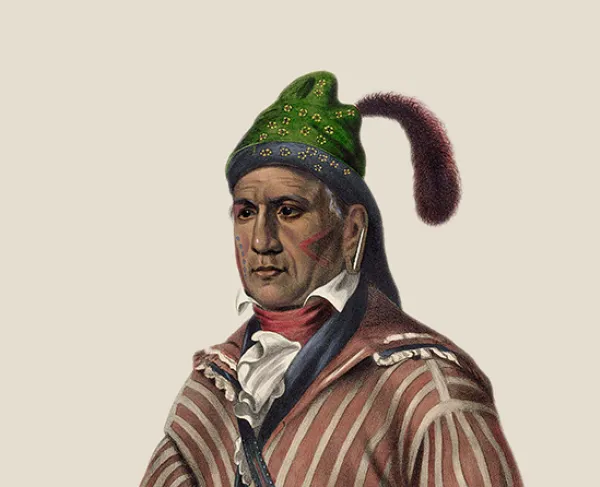Sam Houston

Samuel Houston was born on March 2, 1793, at Timber Ridge, Rockbridge County, Virginia, as the fifth son of Samuel and Elizabeth Houston. His mother moved the family to a new farm in Maryville, Tennessee, after his father’s passing. Rebelling against his family and their expectations, Houston ran away in 1809 to live with the Cherokee, where he got the nickname Colonneh, or “the Raven.” Chief Ahuludegi and the Cherokee raised Houston, becoming his adopted family.
In March 1813, Sam Houston enlisted as a private in the US Army to fight in the War of 1812. He quickly rose through the ranks, becoming an ensign and then third lieutenant by the year’s end. Houston fought in the Battle of Horseshoe Bend on March 26, 1814, where he received three near-fatal injuries, including an arrow to the thigh and a musket ball to his right shoulder. Miraculously, despite the skepticism of physicians in nearby Knoxville, he survived. General Andrew Jackson recognized Houston for his bravery, becoming a mentor. For the rest of his life, Houston would revere “Old Hickory.”
During his recovery, he was promoted to second and then first lieutenant. Also a sub-Indian agent, he helped his adopted father Ahuludegi and the Cherokee to move west of the Mississippi, per their 1816 Treaty. Quitting his office in 1818 over conflict with Secretary of War John C. Calhoun, Houston became a lawyer, a colonel in the Tennessee militia, and eventually the attorney general of Nashville. By 1821, he was elected major general of the state militia.
Following his tremendous rise, Houston won a seat in the US House of Representatives in 1823 for two terms, until 1827, when he became the governor of Tennessee. During this time, he married Eliza Allen, but within 11 weeks, the two mysteriously separated. Houston resigned the governorship in the aftermath on April 16, 1829. Very little is known about his marriage and reasons for resignation, making it unclear if there was a connection between the two events. Fleeing Tennessee, he went back to Ahuludegi, who then lived in the Indian Territory, modern-day Oklahoma. During these three years with the Cherokee, he gained Cherokee citizenship and acted as a mediator among various tribes in the territory. Houston even married Dianna Rogers, a Native American woman, and operated a trading post with her near Fort Gibson.
On December 2, 1832, Houston crossed the Red River into Texas, officially settling in the then-Mexican state. Quickly involving himself in Texian politics, he served as a delegate to the Convention of 1833 and two years later became the commander-in-chief of troops for the Department of Nacogdoches in preparation for an imminent confrontation between Texas and the central Mexican government. The Consultation of 1835 appointed him major general of the Texas Army in November. He also signed the Texas Declaration of Independence on March 2, 1836. Houston and his troops defeated General Santa Ana’s army at the Battle of San Jacinto on April 21, 1836, the decisive turning point of the conflict. Houston was severely wounded above his ankle during the battle, but as with his previous war injuries, he recovered rather quickly. The next day, while taking prisoners and clearing casualties, Houston’s forces captured Santa Anna himself, forcing him to agree to remove troops south of the Rio Grande in the Treaties of Velasco.
Houston was subsequently elected to two nonconsecutive terms as president of the Republic of Texas, being its first and third president. He favored annexation into the United States, but his first attempts proved futile. In 1840, between his two terms, Houston married Margaret Moffette Lea; the couple had eight children.
When Texas finally joined the United States, Houston was elected one of its first two senators, serving from 1846 to 1859. He was an ardent Unionist, taking a firm stand against growing sectional rifts in the antebellum period. Though an owner of enslaved people himself, Houston supported compromises to keep slavery from expanding into new states. He stood for the Compromise of 1850 and against the Kansas-Nebraska Act, two political decisions that made him widely unpopular with Southern Democrats.
In August 1859, Houston was elected the governor of Texas and nearly became a presidential candidate in 1860 for the National Union party. His opposition to secession, however, did not prevent Texas from joining the Confederacy. When he refused to take an oath of loyalty to it, the new Texas government removed him from office.
Retiring to Huntsville, Texas, with his family, Houston passed away on July 26, 1863, after weeks of battling pneumonia. He was seventy. Today, he is buried in Oakwood Cemetery in Huntsville.
Related Battles
276
1,063





